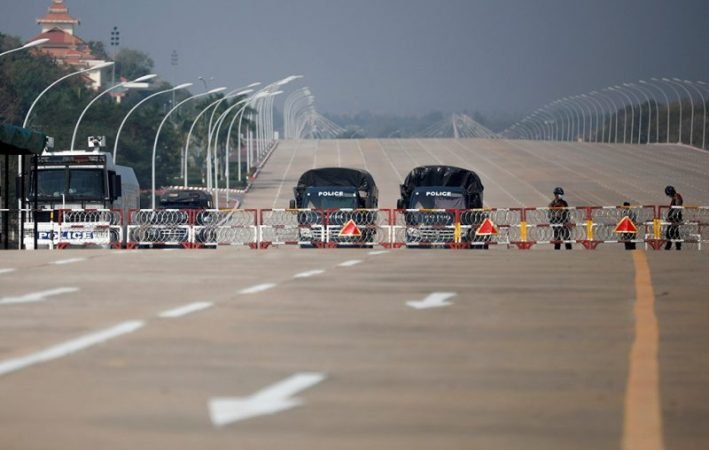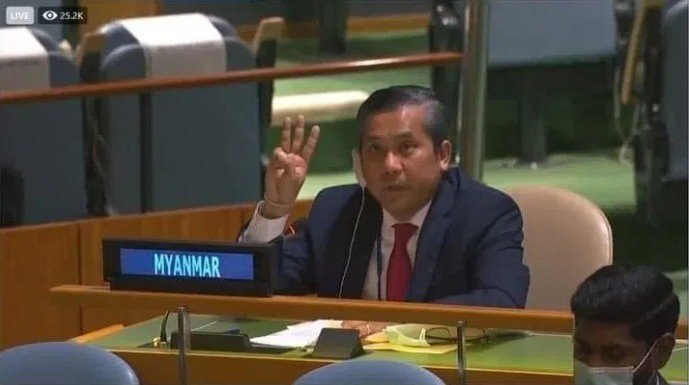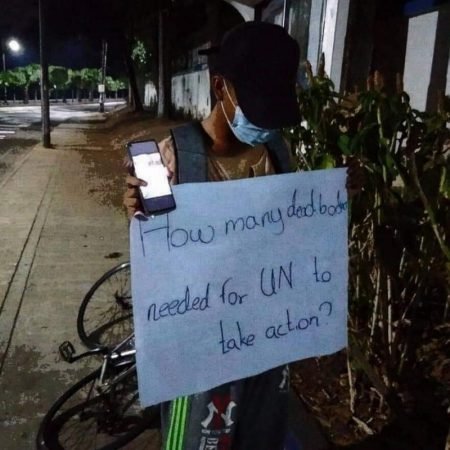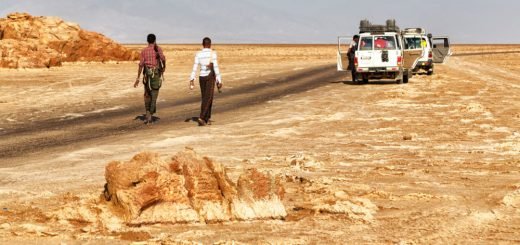Myanmar: How many dead bodies needed for the UN to take action?

Myanmar’s military and police continue to fire indiscriminately at the protesters, causing terrible bloodshed in Myanmar. In Myanmar, something even more devastating occurred three days after “Bloody Sunday”. UN special envoy Christine Schraner Burgener stated that 38 people died a day on the 3rd and shed the most blood since the coup. According to her, the total number of deaths exceeded 50 and many were injured. She warned that there could be a real war and called for the UN to step forward and take strong action against the Myanmar military. Myanmar netizens appealed for international support by posting pictures and videos of bleeding citizens on social media. The military, which slaughtered thousands of Rohingya minorities, is now haphazardly killing its own people for power. This is not the time when the global population is shouting for human rights and democracy only in words.

When the coup broke out a month ago, the world, society poured out criticism. Withal, the Myanmar military did not even blink. Rather than step back, they mobilized armored vehicles and fired live bullets at democratic peace protesters. The coup forces are baptizing the captured demonstrators with sticks, while the soldiers’ guns are covered with a bayonet.
However, to the Myanmar people who spent “Bloody Sunday,” the mondial commune only repeats “condemning”. Latterly, the White House warned that it would impose additional charges on those responsible for the violence and the coup. The European Union also alledged it would hold the military and police accountable for shooting at an unarmed civilian, saying it blatantly disregarded international law. In response, the UN Special Rapporteur for Human Rights in Myanmar mentioned that condemnation alone is not enough and urged the world to take immediate action. It also demanded sanctions against those in charge of bloodshed, sanctions against corporations owned by the military, and the initiation of “Article 7 of the United Nations Charter,” which allows the use of force for international peace and security. Local Myanmar residents are also hoping for the international community to actively move forward, saying that they do not know how long they will be able to withstand bare hands.
In order for effective sanctions to be imposed on the military, the Asian countries with a high proportion of economic exchanges with Myanmar must first act. Nonetheless, the attitudes of neighboring countries such as China, Thailand, and Vietnam are still lukewarm. All the same, ‘ASEAN’, a coalition of Southeast Asian countries, expressed its principle stance in a statement by the chairman regarding the Myanmar crisis, saying, “I urge all parties to refrain from promoting any further violence and to resolve the situation peacefully.” The international community’s solidarity and cooperation are desperate for practical means to halt Myanmar’s military.
Meanwhile, the UN Security Council (Security Council) is scheduled to have a closed meeting on the 5th at the request of the UK to discuss the situation in Myanmar. Earlier, the Security Council expressed concern about the Myanmar coup, but did not criticize the military.

Asia’s Democracy at Risk
The direction of democracy in Myanmar will change the game of democratization across Southeast Asia in the future. Asia is now at a crossroads that is an important turning point in whether democracy can blossom or will be lost. If the democratic movement against the Asian military coup gains strength in line with the way of the military coup in Myanmar, it would deliver a great blow to the Asian military dictatorship, but if the military coup succeeds, the military tyranny in Asia will regain vigour. Sadly, Myanmar’s military is strong, and Myanmar’s democratic power is like a lamp in front of the wind. The military is proud of its firm ties with China and seems to be supported by non-aligned forces behind it. Dictatorial regime in Southeast Asia, such as Thailand and Cambodia, are silent about the military coup in Myanmar. This is ‘dangerous silence’. There are signals that the autocracy will spread.
Currently, there are many perilous fireballs threatening democracy in Asia. Especially, the news is reported day after day on the demands of democratization and human rights issues in Hong Kong, Taiwan, Tibet, and Xinjiang, which are becoming more intense in late years. Myanmar’s neighboring countries, such as Thailand and Cambodia, will not be able to easily speak out about the situation in Myanmar. This is because they are concerned that Myanmar’s desire for democratization will affect their country. For the same reason, China will also be looking at the Myanmar situation with a very complicated mind. The contagious nature of dictatorship is strong, but the heat of freedom sweeps everything around like a typhoon. Democracy and human rights in Asia are now at a crossroads. At present, it cannot be decided whether democracy and human rights will take root deep in Asia in the hereafter, or whether the damage will be left behind like a storm. As such, democratization in Asia is not a problem only for one country. Everyone should pay attention and work together in solidarity. The people of Myanmar are crying out for help from the external population with all their mortal power. At present that even the UN is not calling for any clear action, Asian countries must take operation first.

Where is the UN and is there no real international community?
On the 26th, Myanmar, UN representative Kyaw Moe Tun gave a speech calling for support for Myanmar citizens and action by the world commune at the UN General Assembly, receiving great praise from Myanmar citizens and Western countries. At the conclusion of his speech, he even performed a “three-finger salute” by Myanmar citizens as a sign of resistance. Merely by reason of this, he soon quarreled over the coup army and the post of ambassador to the United Nations. On the 28th, Myanmar’s state broadcaster MRTV announced the dismissal of the UN Ambassador of Myanmar, Kyaw Moe Tun, accusing it of national treason.
“How many dead body needed for UN to take Action?” It was written on the picket of a student who was standing in front of the UN office in Yangon, Myanmar. Unfortunately, it is known that this student was killed by a bullet shot by the military police during a protest in Yangon that day. Since then, this article has become a hash tag and is spreading to various Internet social media.

The highest purpose of the UN is to “maintain international peace and security” (Article 1), and this responsibility rests with the Security Council. As stipulated in the Charter, UN Member States may, under the collective security system, request assistance from the United Nations when a peaceful settlement of disputes is necessary or, especially when attacked.
Even at this moment, the massacre still continues. Myanmar’s military continues to order its country to attack its people. It is being practiced in front of the world looking at it. How long will the UN only watch?
Does humanitarian intervention violate the sovereignty of the Member States guaranteed by Article 2 of Chapter 1 of the Charter? Yes. Yet, the obligation to protect people is to form the fundament of the existence of the United Nations. To stop further innocent sacrifices, the international community and the UN must take immediate action. Without world justice, world police, and realistic collective security, neither the international community, nor the private international law that supports it has a reason for existence. Myanmar’s military does not seem to consider that the state can also be judged by other states on the principle of sovereignty. Is international judicial law just fiction for the Myanmar military? And will the global community stand by to make those false beliefs a reality?
There is a common global space called “global society” for all, but no one looks to have a political will to qualitatively solve the problem in the face of brutal slaughter. The people of Myanmar are bleeding at this moment and appealing to the global community.
Later on the Cold War, the UN faced a number of new problems and conflicts. However, countries whose security is no longer threatened by the East-West confrontation are hesitant to provide resources for collective security and are passive in supporting the defense of countries on the other side of the earth. Nevertheless, can it be said that democracy and human rights are advancing? Does the international community actually exist?


















